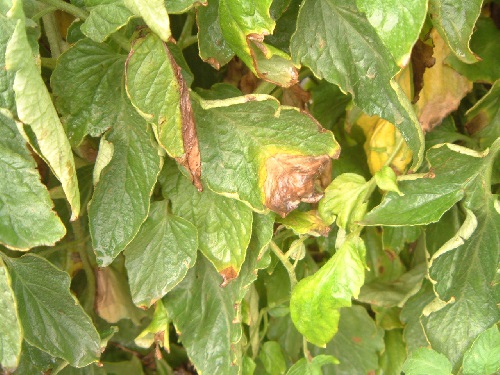Why More Produce Growers Should Get on Board With Biologicals
Consumers are clamoring for sustainably grown products, which is interesting in that many may not know what sustainability actually means, at least in terms of farming. But then again, does anyone?
I was reminded of that difficulty recently in attending the 2021 Organic Grower Summit last month in Monterey, CA. The conference, presented by the Organic Produce Network and Western Growers, attracted a nice-sized audience — especially considering the continuing COVID-19 pandemic — showing there is a lot of interest in farming without chemical inputs. To some, that means sustainability. To others, who argue sustainable farming couldn’t be possible without chemical inputs, that wouldn’t be further from the truth. But that’s an argument for another day.
“Sustainability” is a word that’s on a lot of lips in our industry these days, as everyone knows it’s hot, and everyone wants in. But defining it is difficult. And because it’s considered such a plus, everyone is defining it a different way to their own advantage. But let’s agree to agree that it’s whatever allows growers to keep farming in such a way that’s kind to the environment and provides healthful products to consumers.
Pam Marrone, a wonder of energy who has founded several companies and now serves as a consultant in the biological industry, told the audience at the recent Organic Growers Summit that government officials are strongly encouraging the use of biological products. It’s a clear sign of how things are going, especially for specialty crop growers. For example, she noted that interesting microbes are being developed for improving fertilizer plant uptake.
“There’s a whole new world that’s coming,” she says.
The unfortunate thing is that at the university level, there’s not a lot of biological knowledge. Growers need people to integrate all the data being developed on biological products, but they just aren’t available. Further, she says it has developed into a catch-22 situation of sorts, because to evaluate products, large plots of land need to be used. However, without university backing, growers don’t really have as much impetus to try.
Be that as it may, interest in sustainability keeps increasing. Taking advantage of this for growers may mean “pushing the organic envelope further,” suggested a young fruit grower on a panel at the Organic Grower Summit, Bianca Kaprielian, the co-owner of 10-year-old Fruit World of Reedley, CA.
Kaprielian, who worked in tech after college before returning to the family farm, says that because the consumer doesn’t know what sustainability means, perhaps a more advanced level of accreditation is needed, beyond organic.
But in any case, growers have to find a way to tell their story if they want to sell sustainability, and not just to consumers. For example, she says Fruit World has done extensive Zoom calls during the pandemic so buyers could see their operation from start to finish.
If all this sounds like a mishmash, it is. That’s what you get when people can’t agree on a definition of what is considered such a desirable attribute. What it means is you, as growers, have to do more research.
If you’re at all interested in biological products — and if you’re growing fruit in this country, you should be — consider attending the BiocontrolsSM USA Conference & Expo put together by the specialty crop editors here at Meister Media Worldwide. It’s being held in Monterey, CA — the unofficial capital of U.S. farming when it comes to farming with fewer chemicals — this March 1-2. There is also a tour prior to the conference that promises to provide insights into grower practices you will be sure to find valuable. Visit BiocontrolsUSA.com to register — see you there!









